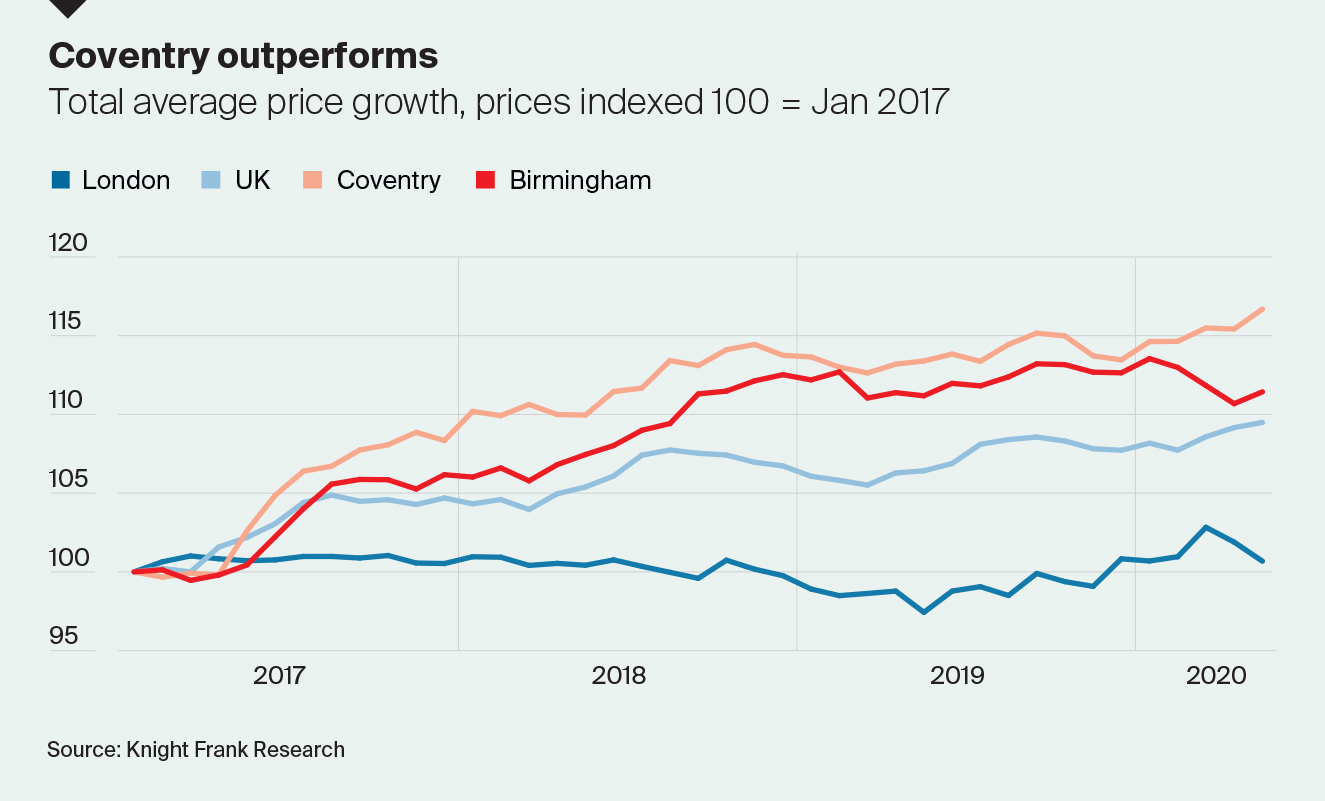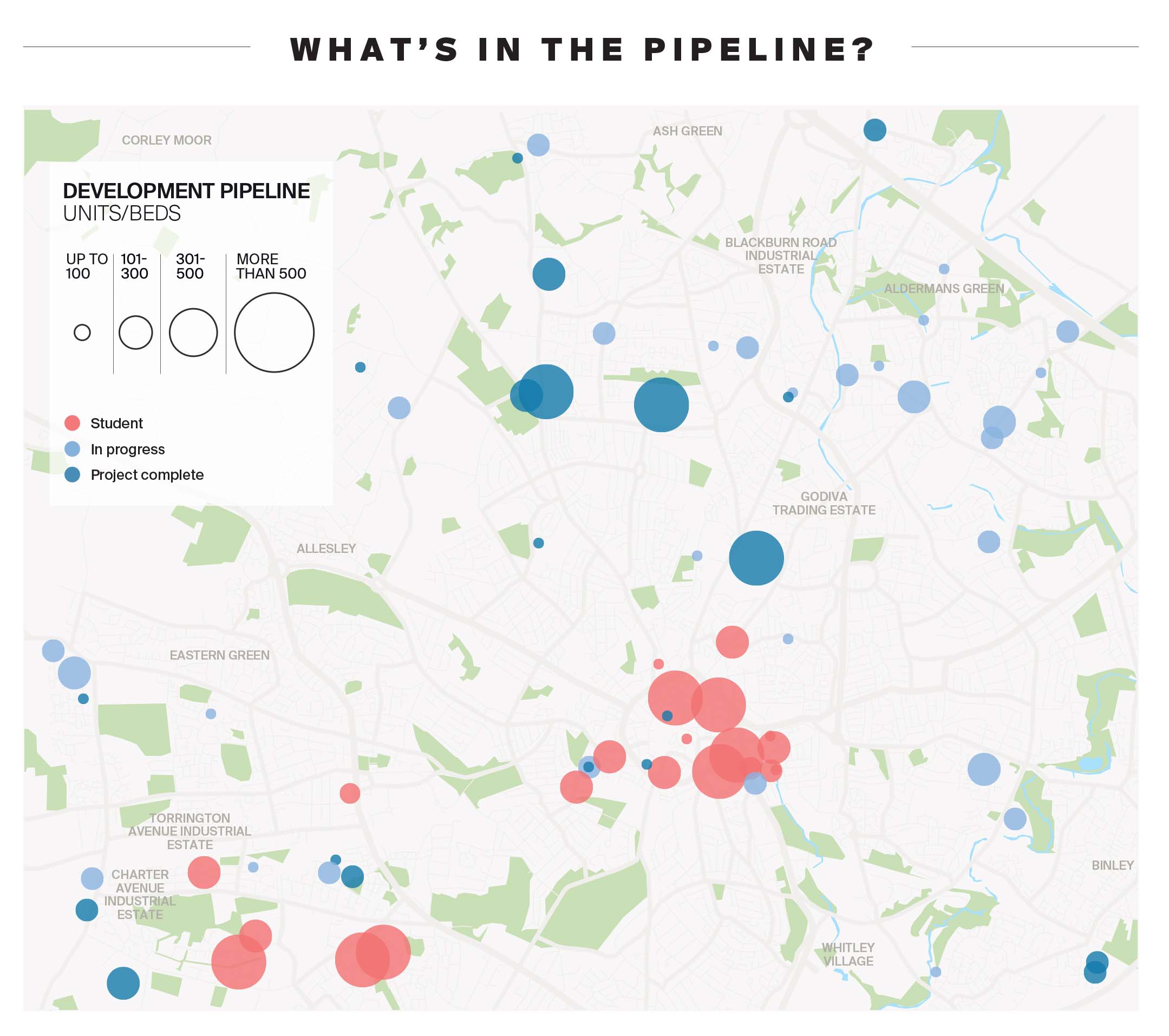Five months to go: Coventry gears up for UK City of Culture
Coventry could be one of the first UK cities to start hosting large scale music and arts events in 2021, after experiencing a period of regeneration.
2 minutes to read
Given the inevitable disruption caused by the outbreak of Covid-19 earlier this year, the city had delayed the start of its UK City of Culture accolade to May 15 next year, with plans for 10,000 performers over the course of the first three days.
Winning the prestigious award, as well as a rapid growth in student numbers, has supported a rise in construction and regeneration in Coventry.
House prices have seen double digit growth over the past three years, while a mismatch between the supply of and demand for of purpose-built student accommodation in the city centre is supporting demand in the private rental sector.
The city is also primed to benefit from the upcoming 2022 Commonwealth Games in Birmingham with Coventry set to host three sports.

Coventry is the third UK City of Culture. The initiative, which is administered by the Department for Digital, Culture, Media and Sport, has already brought in hundreds of millions of pounds in investment for former city title holders.
It was brought in to build on the success of Liverpool’s year as European Capital for Culture in 2008. The inaugural holder of the award was Northern Ireland’s Londonderry in 2013 and in 2017, Kingston upon Hull took over the title.
Winning the accolade in 2017 came as the city was already attracting new residents. Data from the ONS, which tracks migration around the UK, shows the number of people moving into Coventry increased by 27% between June 2015 and June 2019.
Closer analysis shows that, in the 12 months to June 2019, 31% of these movers were aged between 20 and 24, with those aged between 25-29 making up 11%.
The city’s growing population has fuelled a rise in residential construction, currently largely being carried out by housebuilders on the outskirts of the city centre and towards the metropolitan boundary. Data from construction intelligence provider Glenigan indicates 5,295 units were in the planning pipeline as of September 2020.
